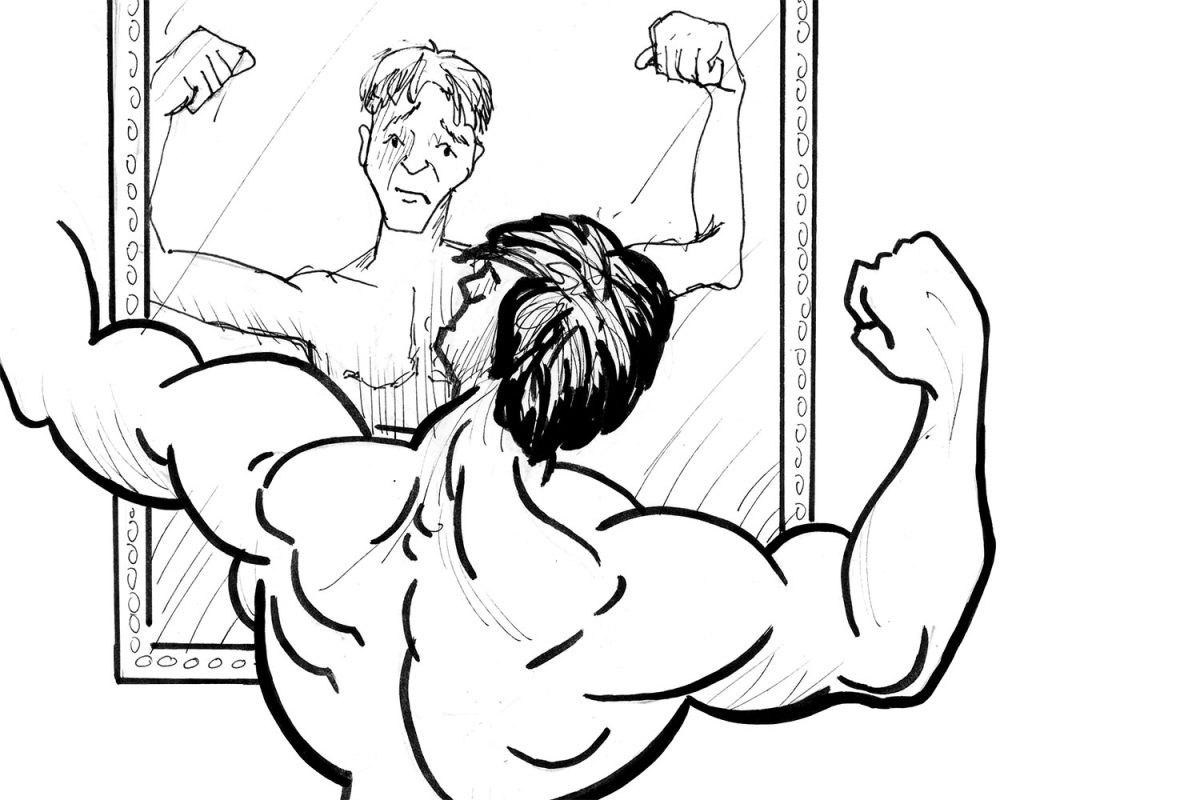He doesn’t feel comfortable wearing normal clothes without a “pump,” an insecurity that comes from a history of bullying from being skinny. Despite him being in better physical shape than most his age, all he sees are his insecurities and how he could be bigger.
Sophomore Ricky Barnes is not alone. His state of mind has become all too common with the use of social media in teens causing an epidemic of body dysmorphia.
“You look at all these [influencers] who are taking steroids or editing their photos or have amazing lighting and you try to compare yourself to them,” Barnes said. “And you make that the new standard when it’s not.”
Body Dysmorphia Disorder (BDD) is a mental health condition that causes you to be so upset with your body that it gets in the way of your ability to live normally.
“It’s not just looking in the mirror and being like, my arms look really small,” De Smet Jesuit athletic trainer Alex Brody MS, LAT, ATC said. “It’s your inability to live, what we would consider to be a normal life.”
According to a study in The National Library of Medicine, the percentage of men dissatisfied with their overall appearance (43%) has nearly tripled in the past 25 years.
BDD can effect your life, by consistently checking yourself in the mirror, constantly comparing yourself with others, always asking other people whether you look okay, and not believing them when they say you look good, avoiding social activities, or wearing apparel to hide your insecurities, like baggy clothes to hide your physique.
“You look in the mirror and you’re like, I was bigger yesterday or like I could be bigger and then you just get pretty upset with how your body is,” Barnes said. “And you wish you were bigger and wish you were something else.”
Causes of BDD can range from a hormonal imbalance in your brain, to a history of being bullied. People with perfectionist personalities tend to have a hard time coming to terms with their physique, only seeing the flaws. Another leading cause is influencers who are on different social media platforms who promote an unrealistic body type through use of anabolic steroids and editing their pictures.
“There’s a difference between being inspired by somebody and feeling really bad about yourself because of the way that they look,” Mr. Brody said. “If I look at a picture, and I immediately start to really feel bad about myself, then that’s something I’d be concerned about.”
Sufferers can become so hyper-focused on one part of their body, that if they get it fixed, instead of them feeling better, it switches to a different part of their body. This turns into an endless harmful cycle.
The first step to conquering body dysmorphia is to speak with a trusted adult about your problem. This part can be hard to do, but if you don’t share, your symptoms won’t go away, and can get worse. The second step is to recognize your negative thoughts and learn to cope with them. Staying active helps to keep your mind and body healthy. Surround yourself with the right people who will help you work through it. If not treated, BDD can spiral out of control into depression, low self-esteem, or in some cases, suicide.
“[BDD] is something that a lot of young men go through,” Mr. Brody said. “It’s important to know that they’re not alone and that they have people here who really care about them and want them to live their best life.”








